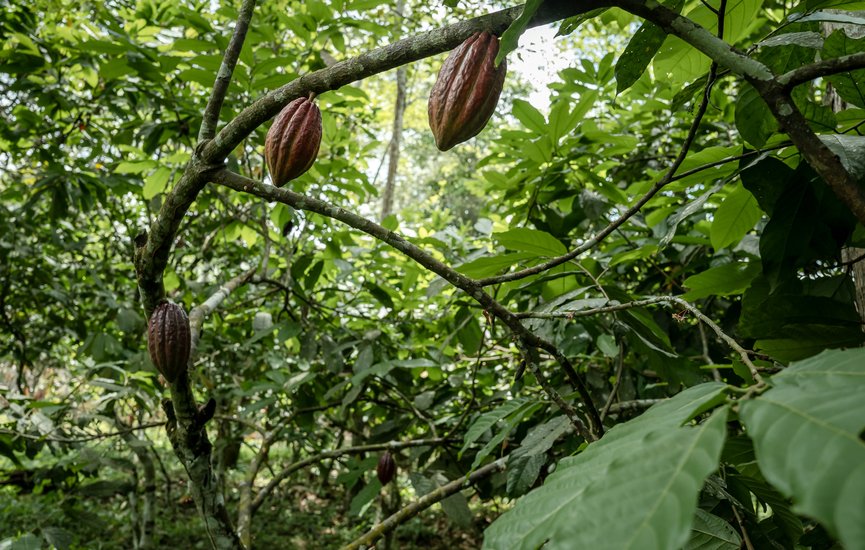In the lush heart of Cameroon’s cacao country, Indigenous Baka communities are demonstrating that sustainable farming can be a powerful force for both economic resilience and environmental stewardship. These communities, deeply rooted in the rhythms of the rainforest, rely not only on cocoa cultivation for income but also on the forest itself for food, medicine, and cultural identity. Their relationship with the land is symbiotic and sacred.
“We live with the forest and the forest lives with us. And now we live off the forest. When we take care of the forest it also provides for us and helps our cocoa farms thrive,” says René Etoua Meto’o, a 26-year-old cocoa farmer whose words echo the philosophy of generations before him. This ethos is being tested by the recent surge in global cocoa prices, which climbed from around $3 to nearly $8 per kilogram between 2023 and 2024. While this boom presents a promising economic opportunity for Cameroon—where cocoa makes up roughly 12% of annual exports—it also intensifies the threat of deforestation in the country’s rainforests, the very cradle of its cocoa production.
The stakes are high. Cameroon’s rainforests, part of the vast Congo Basin, are among the most biodiverse ecosystems on Earth. They are home to countless species and serve as a lifeline for Indigenous communities. “Indigenous people are very important in protecting ecosystems. They are the guardians of these forests, especially in the Congo Basin,” explains Tessa Claude Ndala Mayouya, a communications officer at the United Nations Environment Programme (UNEP). Yet, as global demand for cocoa surges, so does the pressure to clear more forest land—threatening both biodiversity and the cultural fabric of Indigenous life.
In response, the Congo Basin Landscapes Initiative is offering a transformative path forward. Backed by UNEP and the Global Environment Facility, the initiative equips local farmers with training and tools to boost cocoa yields without sacrificing the forest. By embracing agroforestry and sustainable techniques, farmers are able to cultivate premium cocoa while preserving the rainforest canopy. This approach not only safeguards wildlife habitats but also reinforces the Baka community’s ancestral bond with the land.
“We're helping countries from the Congo Basin understand the principle that people need nature to thrive. To understand also that frontiers don't really apply to forests,” Ndala Mayouya adds. The initiative’s impact reaches far beyond Cameroon’s borders. At the consumer end of the supply chain, the result is Rainforest Alliance certified chocolate—marked by the iconic green frog—that is now enjoyed around the world. “When you buy a bar of chocolate with the green frog, you are not just buying chocolate. You are ensuring that they will continue to produce while conserving biodiversity, while protecting the forest,” says Nadège Nzoyem, Senior Director for West and Central Africa at the Rainforest Alliance.
As Cameroon navigates this global cocoa gold rush, it faces a unique opportunity: to expand its cocoa industry while honoring its ecological heritage and empowering Indigenous communities. The Baka people’s commitment to sustainable farming is not just a local success story—it’s a model for how humanity can harmonize progress with preservation.
